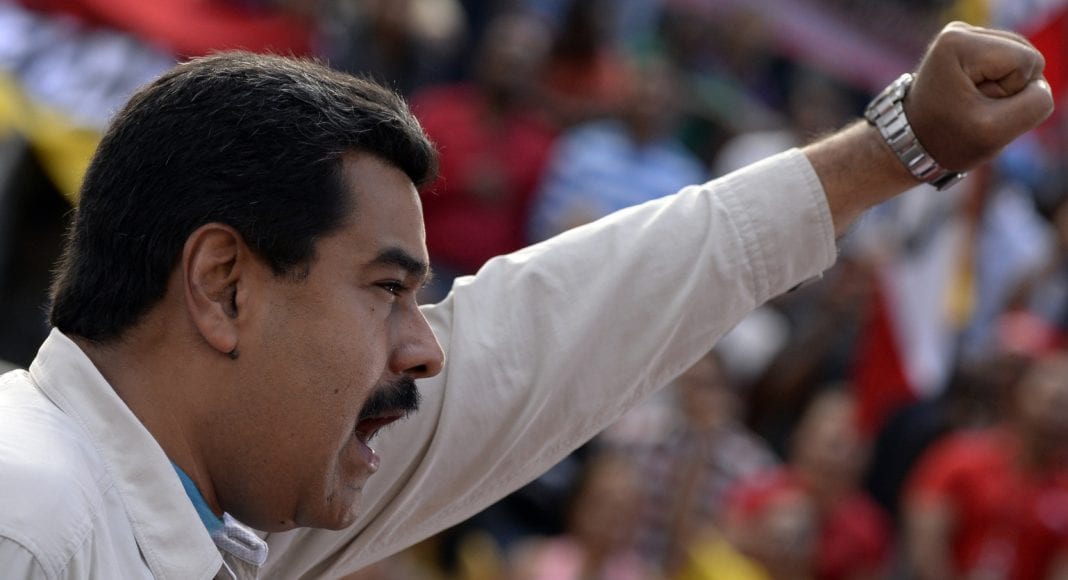A former Guyanese government official believes that a sustained programme to facilitate military tactical support and coordination between Guyana and the United States of America would help to deter further aggression from Venezuela.
Former Minister of Natural Resources and the Environment, Robert Persaud, said in light of the Foreign Minister Carl Greenidge’s recent assessment on the Venezuela military incursions to obstruct oil and gas exploration activities offshore Guyana, the country should seek military cooperation with the United States.
Greenidge had said on January 3 that Guyana has no intention of slowing down offshore exploration and development activities in the Stabroek Block due to a recent incursion by the Venezuelan navy. In a statement in Guyana’s Parliament he reiterated that companies operating in the Stabroek Block will continue to execute their work programmes. He said too that Guyana has informed Venezuela that it will not be intimidated by the aggression.
On Saturday, December 22, vessels under contract with ExxonMobil affiliate Esso Exploration and Production Guyana Ltd. were intercepted by the Venezuelan navy in the western portion of the 6.6 million acres Stabroek Block. The Venezuelan navy is reported to have recklessly attempted to land a helicopter on one of the vessels’ platforms.
Persaud said that the military incursion by the Venezuelan navy and its “seeming determination to make our borders a theatre of strategic geo-political posturings to preserve the erratic Maduro regime with its fanciful military engagements with Russia and Iran must not be treated lightly.”
“Guyana must aggressively begin national dialogue on broader and deeper military cooperation with the United States military,” he said in a comment to OilNOW.
He said that the Jungle Amphibious Training School (JATS) located at Makouria, Essequibo is an ideal location for a long term US military advisory presence. “Guyana cannot be reactive forever; we must be proactive on all fronts even as we pursue our case via the International Court of Justice and diplomatically. How long will we be sitting ducks to Venezuela’s seeming unchecked aggression?” he asked, referencing recent comments by that country’s Vice President, Delcy Rodriguez, in which she falsely claimed that the seismic vessels contracted by ExxonMobil were in Venezuela’s waters when they were intercepted.
According to Persaud, the Caribbean Community (CARICOM) is turning out to be a “useless tool in our diplomatic arsenal and their allegiance is suspect.”
CARICOM issued a belated statement condemning the Venezuelan aggression on December 22, 2018. Sister country Trinidad and Tobago also sent its Foreign Affairs Minister, Dennis Moses, to the controversial inauguration ceremony of Venezuelan President Nicolas Maduro, on January 10. A number of countries in the region including those within the Lima Group refuse to recognize the legitimacy of the new Maduro regime. The Group said that “the electoral process carried out in Venezuela on May 20, 2018 lacks legitimacy due to the lack of participation of all Venezuelan political actors, presence of independent international observers, and the guarantees and standards necessary for a free, fair and transparent process.”
“It is time we look at unconventional strategic alliances to preserve our resources and territorial integrity. Let’s not forget our greatest existential threat is an aggressive, unpredictable and desperate Venezuelan regime clinging on to power,” Persaud stated.
In early December 2018, two nuclear capable Russian bombers landed in Venezuela raising the ire of the United States given its tenuous relationship with both Russia and the Bolivarian Republic. Speculation was rife as to why Russia would send two such aircraft halfway around the world to Venezuela.
A report in Time Magazine said the Tu-160 bombers were manufactured at the end of the Cold War “and are among the most advanced strategic bombers in the world, capable of flying at twice the speed of sound and carrying both conventional and nuclear-armed cruise missiles that have a range of more than 3,400 miles.”
US Secretary of State, Mike Pompeo, has condemned these recent acts between Venezuela and Russia. “The Russian and Venezuelan people should see this for what it is: two corrupt governments squandering public funds, and squelching liberty and freedom while their people suffer,” he said in a tweet.



